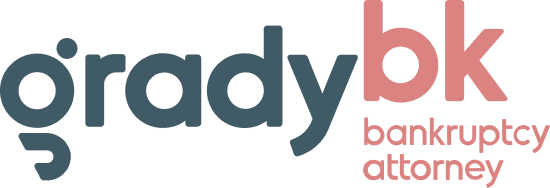If you are struggling with debt that keeps piling up, you are far from alone. With inflation on the rise, many individuals, families, and small businesses are having to make difficult financial decisions. Unfortunately, the public perception of bankruptcy tends to be negative, with many viewing it as a desperate and even shameful option. However, this stigma is far from reality—bankruptcy offers a much-needed fresh start that many people need to regain control of their futures and feel hopeful. As you start to explore your bankruptcy options in the Auburn, New York, area, you should consider enlisting the guidance of a caring and compassionate bankruptcy attorney to help you determine the most strategic path forward. In addition, it can help you familiarize yourself with the bankruptcy filing process to ensure that you make informed decisions with greater clarity and confidence.
First, What is Bankruptcy?
Bankruptcy is a legal proceeding in which someone struggling with debt can obtain a fresh financial start. Federal law provides individuals with the right to file for bankruptcy as long as they can fulfill certain criteria. Different types of bankruptcy, called Chapters, provide various types of relief. The two most common forms of bankruptcy for struggling individuals are Chapter 7 and Chapter 13. Although these processes differ, they both follow a specific set of legal rules and procedures focusing on a common goal—debt relief for the individual petitioner. As you start to explore your debt relief options in New York, reach out to an experienced and caring attorney who can assess your situation and identify the most appropriate course of action.
Chapter 7 Bankruptcy in New York
Chapter 7 bankruptcy allows you to petition the court to discharge (wipe away) your debts. Certain debts like most taxes, student loans, and child support can not be discharged. When you file the bankruptcy you list everything in the world you own (house, car, bank accounts, etc.) and you are provided exemptions that protect your property. Most people are able to protect all their property. To qualify for Chapter 7 bankruptcy relief, you must prove that your income level falls below the state’s average income for your household size. Most Chapter 7 cases move forward quickly; you receive a discharge within three months after filing your bankruptcy petition.
Filing for Chapter 13 Bankruptcy Relief
Chapter 13 bankruptcy, also known as the wage earner’s plan, typically works best for individuals who still have a steady income but have accumulated significant debt. People who do not qualify for Chapter 7 relief because their income level is above the average often find relief through a Chapter 13 filing. Homeowners who have fallen behind on their mortgage payments or who want to stop foreclosure proceedings may file for Chapter 13. When you file for Chapter 13 in Auburn, New York, you establish a repayment plan that lasts between three to five years to pay off a percent of your debt. During this time, you will make regular payments to a court-appointed trustee, who will then pass these payments to your creditors. At the end of the repayment period, the court will discharge (wipe away) your remaining debt. However, it’s important to recognize that some debts, like student loans and child support obligations, are not dischargeable.
Understanding the Limitations of Bankruptcy
Filing for bankruptcy does not mean all your obligations suddenly disappear. It’s essential to recognize that there are several things a bankruptcy discharge cannot do. First, it is not a “cure” for every financial problem. If you owe money on your mortgage or car loan, filing for bankruptcy does not wipe away those debts if you want to keep the collateral. You would continue to pay on any secured debt that you wanted to keep (mortgage, car loan, etc.). Also, bankruptcy will not allow you to discharge debts you accrued after the filing date. Bankruptcy can be an overwhelming experience, but you do not have to go through it alone. Working with a compassionate bankruptcy lawyer is the best way to make sure you understand your options and know what to expect from every step of the bankruptcy process.
Helping You Feel Hopeful About Your Financial Future
Financial stress can be incredibly disruptive and overwhelming, but you should know that options are available to help you regain control of your life. Discuss your bankruptcy options with a knowledgeable and caring Auburn attorney to determine the most strategic path forward. Your attorney will not judge you for landing in this situation; in contrast, they are there to support and guide you toward a brighter future. Reach out to a trusted attorney today to get started.

